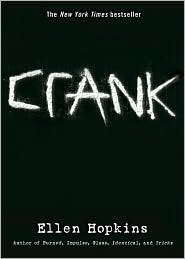
Boyne, John. The Boy in the Striped Pajamas. New York: Random House, 2006
Annotation: In 1943, a nine year old German boy moves into a new house, missing the fun and friends he left behind, but finds a new companion on the other side of a fence. That fence encloses a very dark place, but it becomes a lens through which perspectives are challenged, and the question becomes who is really behind the fence.
Justification for Nomination: Emotional reactions to books do not automatically make for award winning books, but Boyne's The Boy in the Striped Pajamas delivers a deep emotional cut that will leave readers shocked and saddened, but understanding of the need for such drama. The book's poignant ending justifies an easy recommendation to nearly any reader, but the provocative look at the forces that guide (and misguide) the formation of ethics makes the book something very special for teens.
Bruno, the son of a Commandant in the Hitler's army, is forced to relocate just outside the fence of Auschwitz. The novel beings as a simple 'new kid in town missing the old neighborhood' story, but shortly becomes a novel about the role that perspective plays in creating friends and enemies. Shmuel, the boy on the "wrong" side of the fence, a gentle Polish Jew who is the literary representation of all holocaust victims, thus making the tragedy readily relatable. As the boys get to know each other and a friendship emerges, Boyne continues to use their naiveté to contrast the naive violent and antisemitism at the root of the conflict. Bruno, is unaware of his prejudices, those they do linger as foreboding premonitions of adult aggression. Nonetheless, the takeaway of the message is that young people were and are always less capable of hate for the sake of ideology.
While the main character is not a teen per se (he is nine) it still works very well as a young adult novel as he is in a place and time where children were forces to grow up very fast. Plus, the slightly removed age of the protagonist from the readers allows for a degree of parity with the historical reflections in the book - as we remember our youth, we begin to remember the beliefs that we didn't have yet. While the quality of the writing is indeed strong, and the characters well represented, the profound power of the novel is how the whole things works together an allegory for how the line between friends and enemies, and how ideology can destroy innocence.
Genre: Printz, Historical Fiction, Coming of Age/Search for Identity, Dark


